'관리자' 기자의 전체기사
-

The Controversial Future of AI Digital Textbooks in Korea
As the world becomes increasingly digital, education systems around the globe are seeking ways to modernize. South Korea, known for its strong academic culture and technological leadership, is now stepping into a new phase of innovation through the use of AI Digital Textbooks (AIDT). These textbooks, powered by artificial intelligence, promise to transform classrooms with personalized learning and smart feedback systems. However, despite their potential, AIDTs are also facing serious controversy regarding their fairness, effectiveness, and role in education. AI Digital Textbooks are more than
- 관리자 기자
- 2025-06-10 19:54
-
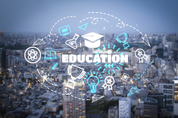
The National Education Committee: Shaping the Future of Ko…
In a society where education is deeply connected to personal success and national progress, how a country sets its education policies matters greatly. In South Korea, education has long been a top priority — but also a topic of frequent political debate and constant change. To bring greater consistency, vision, and fairness to the nation’s education system, the National Education Committee (NEC) was established. This new, independent body is now at the center of Korea’s efforts to create long-term, future-oriented education policies that can serve students, teachers, and society more effective
- 관리자 기자
- 2025-06-10 19:45
-

The Fall of Coffee Shops: A Bitter Taste of Overcompetition
In recent years, South Korea has been known for its thriving coffee culture. Cafés fill the streets of every city, from major franchises to small independent shops. With a high demand for coffee and a growing café-loving population, opening a coffee shop once seemed like a smart business decision. However, what was once viewed as a golden opportunity has now become a harsh reality for many owners. Due to overcompetition and market saturation, coffee shops are closing down at an alarming rate — a silent crisis hiding behind the aroma of espresso. South Korea ranks among the top countries in cof
- 관리자 기자
- 2025-06-10 17:44
-
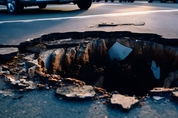
Sinkholes: A Silent Threat Beneath Our Feet
When people imagine natural disasters, they often think of earthquakes, floods, or typhoons. However, one of the most surprising and dangerous threats can occur without warning, right beneath our feet. That threat is a sinkhole — a sudden collapse of the ground that can swallow roads, cars, and even buildings. As urban areas grow and underground construction becomes more common, sinkholes are becoming an increasingly serious social issue that requires awareness and prevention. A sinkhole is a hole in the ground caused by the collapse of the surface layer. While some sinkholes form naturally, m
- 관리자 기자
- 2025-06-10 17:26
-
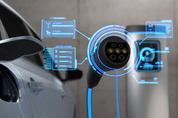
The Power of Change: Why Electric Vehicles Are the Future
In a world facing serious environmental challenges, the way we travel is becoming more important than ever. Cars are everywhere, but traditional vehicles that run on gasoline or diesel release large amounts of carbon dioxide (CO₂), one of the biggest causes of climate change. That’s why electric vehicles (EVs) are gaining global attention. These cars are not just a trend — they are a smart, clean, and exciting solution for the future. First, electric vehicles are better for the environment. Unlike regular cars, EVs do not produce harmful gases while driving. According to environmental studies,
- 관리자 기자
- 2025-06-10 17:18
-
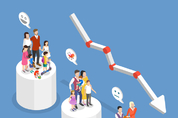
Korea’s Shrinking Population: A Silent Crisis for the Future
In recent years, South Korea has become known for its rapid economic development, high-tech industries, and strong education system. However, behind this success lies a quiet but serious problem: a rapidly declining population. With fewer babies being born and more people growing old, Korea now faces a national challenge that could affect every part of its society — from schools and workplaces to the economy and the future of its young people. The most alarming sign of this issue is South Korea’s world-low fertility rate. In 2023, the average number of children a woman is expected to have in h
- 관리자 기자
- 2025-06-10 14:40
-
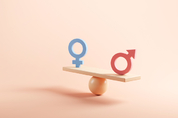
Gender Inequality: Why Equal Opportunities Still Matter
In many ways, our world has made progress in giving boys and girls the same chances. But the truth is, gender inequality still exists — in schools, in the workplace, and even in daily life. It's a problem that affects not just girls, but everyone. What Is Gender Inequality?Gender inequality means that people are treated unfairly just because they are male or female. This can happen when one gender is given more rights, respect, or opportunities than the other. For example, in some countries, girls may not be allowed to go to school. In others, women are paid less than men for doing the same jo
- 관리자 기자
- 2025-06-10 14:28
-

FAKE NEWS: How Misinformation Is Changing the Way We Think
In today’s fast-moving digital world, anyone can share news with the click of a button. But not everything we see online is true. From fake headlines to edited photos and misleading videos, misinformation is spreading faster than ever — and it’s becoming a serious problem in our society. What Is Fake News?Fake news is false information that is made to look like real news. It can be completely made-up, exaggerated, or written in a way that tricks people. Some fake news is spread to make money, while other types are shared to create fear, confusion, or influence people’s opinions. For example, d
- 관리자 기자
- 2025-06-10 14:22
-

Sharp Rise in Illness Reports Among Young Children — Preve…
Health officials have announced that the number of illness reports has increased by 2.5 times compared to the same period last year. The rise is especially noticeable among children under 10 years old, with many cases coming from group facilities such as daycare centers and kindergartens. Experts emphasize that proper hygiene and prevention are more important than ever in places where children live and learn together. Group Facilities Require Careful ManagementDaycare centers and kindergartens bring many children together each day. This makes it easier for illnesses to spread quickly. To prote
- 관리자 기자
- 2025-06-10 01:42
-
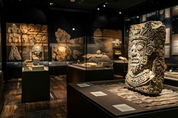
The Ancient Mayan Civilization
Who Were the Maya?The ancient Maya were a powerful civilization that lived in Central America. They built great cities and had an advanced culture. The Maya lived in what is now southern Mexico, Guatemala, Belize, and parts of Honduras and El Salvador. The Maya civilization began more than 3,000 years ago and reached its peak between AD 250 and 900. Mayan Cities and PyramidsThe Maya built amazing cities with large stone pyramids, palaces, and temples. Some famous cities include Tikal, Copán, and Chichén Itzá. In the center of each city was a great plaza for ceremonies. The Maya used huge stone
- 관리자 기자
- 2025-06-10 01:38
-
 Entertainment · Broadcasting
Fair Play Menarini International Award, 29th Award Ceremony marked by waves of emotion
Entertainment · Broadcasting
Fair Play Menarini International Award, 29th Award Ceremony marked by waves of emotion
-
 Entertainment · Broadcasting
The Rose, the first Korean band to perform at Coachella, confirms Seoul concert on August 30 for “Once Upon a WRLD”
Entertainment · Broadcasting
The Rose, the first Korean band to perform at Coachella, confirms Seoul concert on August 30 for “Once Upon a WRLD”
-
 Culture · Events
Incheon Port Authority kicks off the 6th Incheon International Marine Forum in Songdo, Incheon, to look into the future of the global marine industry
Culture · Events
Incheon Port Authority kicks off the 6th Incheon International Marine Forum in Songdo, Incheon, to look into the future of the global marine industry
-
 Culture · Events
Seocho Symphony Orchestra to hold performances in Berlin, Germany, and London, England, commemorating the 80th anniversary of liberation and the 75th anniversary of the Korean War
Culture · Events
Seocho Symphony Orchestra to hold performances in Berlin, Germany, and London, England, commemorating the 80th anniversary of liberation and the 75th anniversary of the Korean War
-
 Culture · Events
Gyeonggi Province to hold its largest job fair for middle-aged and older workers on the 9th. 1,000 jobs to be filled.
Culture · Events
Gyeonggi Province to hold its largest job fair for middle-aged and older workers on the 9th. 1,000 jobs to be filled.
-
 International
Jeju's soul resonates in Rome... Singing of the pain and reconciliation of Jeju 4·3
International
Jeju's soul resonates in Rome... Singing of the pain and reconciliation of Jeju 4·3
-
 International
Seoul City establishes a foothold for K-Beauty and fashion to enter the European market, promoting Milan as a base
International
Seoul City establishes a foothold for K-Beauty and fashion to enter the European market, promoting Milan as a base
-
 Medical · Health
Korean Centers for Disease Control and Prevention: Increase in hand, foot, and mouth disease among infants and young children! Follow preventive measures and maintain good hygiene to stay healthy.
Medical · Health
Korean Centers for Disease Control and Prevention: Increase in hand, foot, and mouth disease among infants and young children! Follow preventive measures and maintain good hygiene to stay healthy.
-
 Medical · Health
Korean Centers for Disease Control and Prevention: Injured patients account for the largest proportion of hospitalized patients; falls are the main cause
Medical · Health
Korean Centers for Disease Control and Prevention: Injured patients account for the largest proportion of hospitalized patients; falls are the main cause
-
 Medical · Health
WHO and international health experts visit Wanju local food production sites
Medical · Health
WHO and international health experts visit Wanju local food production sites
-
2025-08-07 01:19
Lotte Scholarship Foundation Provides 300 Job Seekers with 300 Million Won in Scholarships and Employment Training Support
-
2025-08-01 09:42
Lotte Scholarship Foundation to Provide 270 Million Won in Scholarships to 100 Teenage Mentors
-
2025-07-09 11:08
Rethinking the Way We Handle the High School Credit System
-
2025-07-09 09:10
일본어 기초 회화 4
-
2025-07-09 09:06
일본어 기초 회화 3





















